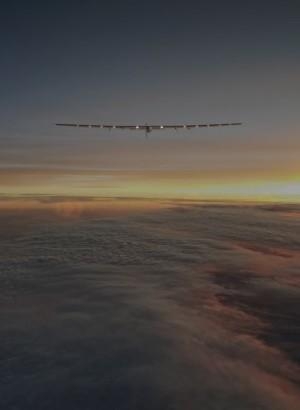Fri, Nov 22, 2019
Skydweller Aero Is Developing The World's First Solar-Powered Drone Capable Of Perpetual Flight With Heavy Payloads
Leonardo is accelerating the progress of technology and innovation in autonomous flight by investing in Skydweller Aero Inc., a U.S./Spanish start-up specializing in large-scale solar-powered unmanned air systems. The initiative will result in the development and deployment of the Skydweller drone, the world’s first fully electric unmanned aircraft capable of carrying large payloads with unlimited range and ultra-persistent endurance.

"As the key technological investor and partner of the project, Leonardo will broaden its capabilities in new power systems, autonomous flight, innovative aerostructures, ultra-light materials and eco-friendly technologies to improve the company's competitive advantage in the aerospace business for the next 20 years," said Alessandro Profumo, CEO of Leonardo.
Thanks to its unique features, Skydweller combines potentially unlimited persistence and range with the flexibility of an aircraft. It will operate from existing airbases around the world, deploy thousands of miles away to areas of high need, and remain overhead for orders of magnitude longer than current aircraft. This revolutionary platform will be used for purposes ranging from land and maritime surveillance to monitoring the environment and infrastructure, from industrial geo-information services to telecommunications and precision navigation. During emergencies and disaster-recovery situations, the system can be rapidly deployed from distant locations to provide backup communications and direct support to first responders.
The Skydweller project builds on a proven and mature aircraft that successfully circumnavigated the globe in 2016. The first phase focuses on converting the aircraft from a manned platform into an Optionally-Piloted Vehicle (OPV) by integrating advanced autonomy algorithms and vehicle management systems. The second step of the project will culminate in the first production aircraft, designed solely for unmanned operations and hardened against a range of environmental conditions. Autonomous flights of the OPV are projected for 2020 and the first production model of the unmanned version of the aircraft is expected in 2021.
The system will comply with European export laws and will not be subject to International Traffic in Arms Regulations (ITAR) restrictions. This will enable the aircraft to satisfy government and commercial needs around the world. Leonardo will act as the prime contractor for commercial opportunities in Italy, the United Kingdom, Poland and NATO.
Development and construction of the aircraft will be carried out at the Skydweller facility in the Castilla-La Mancha region of Spain. Leonardo Aircraft division will participate in development and engineering activities via a dedicated team.
(Image provided with Leonardo news release)
More News
Bolen Issues Statement Reinforcing Need To Reopen Government The National Business Aviation Association’s President and CEO issued the statement below in response to further >[...]
Output May Reach Its Best Since 2018 Despite Trailing Behind Airbus Boeing delivered 53 jets in October, bringing its 2025 total to 493 aircraft and marking its strongest output si>[...]
Low-Cost Airline Admits “Substantial Doubt” It Can Stay Airborne Spirit Airlines has once again found itself in financial trouble, this time less than a year after clai>[...]
Travelers Leaving Changi Will Soon Pay for Sustainable Fuel Starting April 2026, passengers flying out of Singapore will find a new fee tucked into their tickets: a Sustainable Avi>[...]
Pilot Was Having Difficulty Controlling The Airplane’S Rudder Pedals Due To His Physical Stature Analysis: The pilot was having difficulty controlling the airplane’s ru>[...]
 NBAA Responds To GA/BA Operational Restrictions
NBAA Responds To GA/BA Operational Restrictions Boeing Deliveries Surge to Pre-Pandemic Levels
Boeing Deliveries Surge to Pre-Pandemic Levels Spirit Forecasts Financial Turbulence
Spirit Forecasts Financial Turbulence Singapore Adds a Price Tag to Going Green
Singapore Adds a Price Tag to Going Green NTSB Final Report: Arlie L Raber III Challenger 1
NTSB Final Report: Arlie L Raber III Challenger 1



